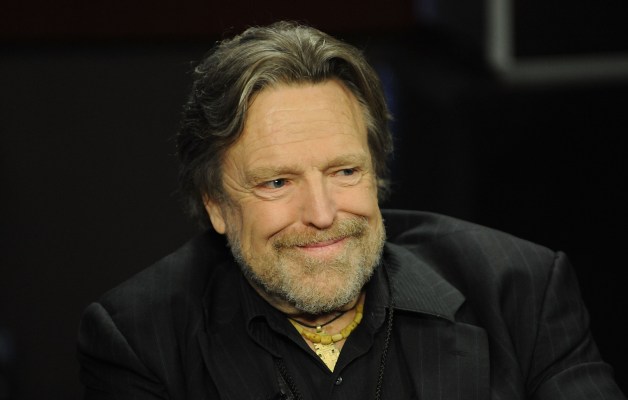John Perry Barlow has one of those resumes that seems too surreal to possibly be true. Entertainment sites are currently lamenting the loss of a poet turned Grateful Dead lyricist. Political sites are mourning the death of a lifelong activist. For tech sites such as ours, however, he’ll be forever remembered as the co-founder of the Electronic Frontier Foundation — arguably the most influential organization for internet civil liberties.
EFF Executive Director Cindy Cohn announced Barlow’s passing at age 70 in a blog post today, noting, “It is no exaggeration to say that major parts of the Internet we all know and love today exist and thrive because of Barlow’s vision and leadership. He always saw the Internet as a fundamental place of freedom, where voices long silenced can find an audience and people can connect with others regardless of physical distance.”
After spending much of the 1970s co-writing songs with Dead guitarist Bob Weir, the Wesleyan graduate co-founded the EFF along with digital rights activists John Gilmore and Mitch Kapor. The organization was founded after Barlow had a run-in with the FBI over some Macintosh ROMs.
“When we first defined the mission of the Electronic Frontier Foundation, we saw our task as assuring the application of the U.S. Constitution to digital media,” Barlow wrote in a lengthy and fascinating piece detailing the genesis of the organization. “The Electronic Frontier Foundation grew from an effort to fight a specific legal brushfire into a full-fledged Cause much faster than we could have imagined.”
Six years later, Barlow outlined his vision for the future of online communications in “A Declaration of the Independence of Cyberspace,” which paints a Utopian vision for the possibility of the internet.
“We are creating a world that all may enter without privilege or prejudice accorded by race, economic power, military force, or station of birth,” Barlow wrote. “We are creating a world where anyone, anywhere may express his or her beliefs, no matter how singular, without fear of being coerced into silence or conformity.”
In the wake of a particularly troubling year for online media, it’s easy to see how some might have mistaken that hopefulness for naiveté, but Cohn, who worked alongside the internet pioneer, notes in her piece, Barlow, “knew that new technology could create and empower evil as much as it could create and empower good. He made a conscious decision to focus on the latter.”
Barlow continued to work along with the EFF in subsequent decades and continued espousing his ideals, becoming an influential force in the lives of online entrepreneurs like Aaron Swartz and Sean Parker.
Boing Boing’s Cory Doctorow recalled working alongside Barlow at the EFF in a post earlier today. “When I took at job at EFF a few years later and Barlow became my kinda-sorta boss,” Doctorow writes, “I discovered the immense joys (and inarguable frustrations) of working with him: Barlow challenged received wisdom, made you revisit your assumptions and look at problems sideways and upside-down to get the lay of them. I argued with Barlow a lot, and lost more than once, and was always better for it.”
According to Cohn, Barlow died peacefully in his sleep this morning.
